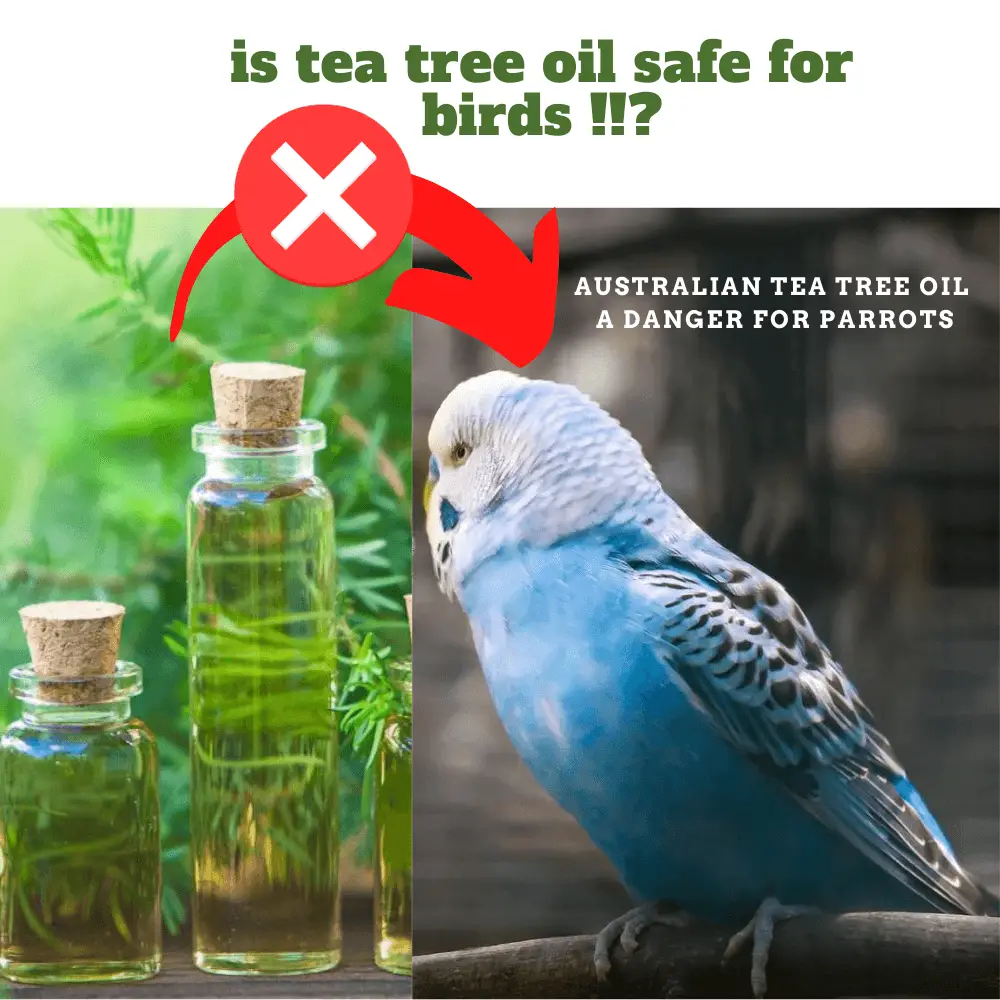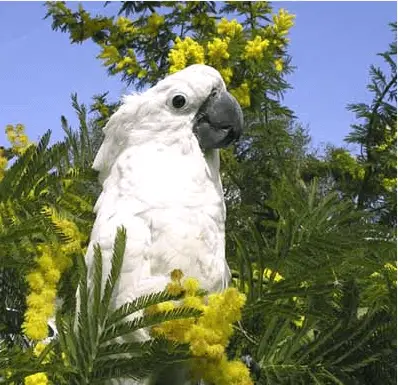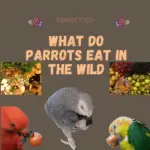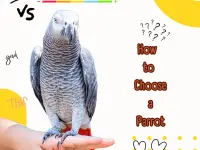
Is tea tree oil safe for birds: Each year brings us its revolutionary new product for parrots, generally a “natural” product since unfortunately the word “natural product” has a connotation of “safe for health”.
It is difficult to find nowadays a product that does not contain the word “natural” on its packaging or in its presentation; popular imagery that anything “natural” is better than what is not “natural”.
Before going any further in the story, I would like to remind you that arsenic is a natural product and so is digitalis. Substances produced naturally by plants can be deadly poisons or make you very sick.
Plants contain several substances some of which have minimal biological action and are considered edible foods, others have pharmaceutical effects which are useful if used wisely, and still, others contain a host of substances, even toxic ones. in tiny amounts, such as arsenic, hemlock, and all alkaloid poisons.
Is tea tree oil toxic to birds

These same substances can act differently depending on the fragility of the species. Avocado is a good example: it’s delicious and harmless to humans, but horribly toxic ( deadly ) to parrots. This is the case with several foods or products for pharmaceutical purposes.
Aspirin is great for little human ailments but deadly for cats! So before you apply anything to your darling bird, never forget that it is your parrot’s life that is in question and that what does not seem harmful to you or your children can be very dangerous. for Coco.
This brings me to talk about the latest product in vogue in the avian world, ie melaleuca oil or tea tree oil from Australia, commonly called “tea tree oil”.
Melaleuca oil which comes from the Australian tea tree ( melaleuca alternifolia ) is said to be an antibacterial and antifungal miracle and it is all the rage at the moment in the essential oils department. A truly dangerous fury for those who do not know how to use this “harmless natural product” adequately.
Unfortunately, tea tree oil has far too much in common, structures, and actions with turpentine ( pinus pinaster ) which is excessively toxic to our parrots.
|
Tea tree oil |
Turpentine |
|
| Family | Mytraceae | Abietaceae |
| Biochemical profile | Cineole-1,8, A-Pinene | A-Pinene, B-Pinene |
| Organ | Unpressurized steam distilled leaves | Unpressurized steam distilled resin |
| Therapeutic actions | Expectorant, anti-infective, relaxing, healing | Antiseptic, expectorant, stimulant |
| Recommendations | Warning: use with caution, may be toxic to young children and animals | Warning: use with caution, may be toxic to young children and animals |

Is tea tree oil safe for birds
More and more cases of poisoning have been reported following the topical or ingested use of “tea tree oil”, both in humans and in animals.
According to Gillian Willis, pharmacist and toxicologist, “melaleuca oil is highly lipophilic (a molecule that is absorbed by fat ) and can be absorbed through the skin and cause systemic toxicity.” Several cases of various poisoning are exposed on its site www.exoticbird.com/gillian/.
The National Animal Poisoning Control Center, NAPCC has reported several cases of poisoning, some fatal, in dogs and cats that have received flea treatments or dermatological treatments with melaleuca oil.
They conclude that it is the strongly lipophilic nature of this oil that not only reinforces its antiseptic properties but also its skin absorption.
Several cases are also reported by avian veterinarians ranging from mild to fatal poisoning in our pet parrots. These cases are new and are only beginning to emerge from the closet of veterinary surgeries.
Making the connection between the effect and the cause was not obvious at first, since the clinical signs are varied ( ataxia, tremors, weakness, behavioral disorders, depression, etc. ) and can resemble many other pathologies. The oil can be absorbed through the skin or by ingestion during grooming.
Before treating your parrots yourself with “natural” medicines, it is better to consult your veterinarian. Fortunately, mine knew about it and saved me from doing a big mistake.
Specialists in “natural medicine” are not avian veterinarians. My doctor tells me to consume avocados regularly because they contain good cholesterol … Imagine the damage if I used this wise advice with my parrots …
learn more:




















